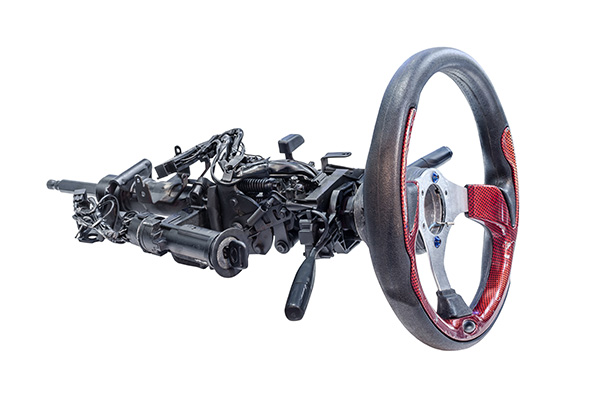
Have you ever gotten into your car, all set for your drive, only to find that your steering wheel feels stiff and hard to turn? It's not just an inconvenience—it can be a safety risk. Difficulty turning your steering wheel can make driving stressful and dangerous. Whether you're having trouble with tight corners or navigating straight roads, it's important to know the causes of this issue and how to deal with it.
Low Power Steering Fluid
One of the most common reasons for a hard-to-turn steering wheel is low power steering fluid. Your car's power steering system relies on hydraulic fluid to make turning easier. When there isn’t enough fluid in the system, the steering wheel becomes stiff, particularly when turning at low speeds or while parking. Low fluid can occur due to leaks or natural wear and tear over time.
If your fluid is leaking, it must be addressed immediately. Driving with insufficient fluid not only makes steering harder but can also cause damage to the power steering pump and other parts, leading to more expensive repairs down the line.
Faulty Power Steering Pump
The power steering pump is the heart of your steering system, circulating hydraulic fluid to give your steering its ease and precision. When this pump starts to wear out or fails, it’s harder for the system to function efficiently, making the wheel harder to turn. You might also hear a whining noise when you turn the wheel, which is a telltale sign the pump is on its way out.
A damaged or failing power steering pump is something you don’t want to ignore. While your car may still be drivable, forcing the steering wheel to turn puts undue stress on the entire system, which can cause further breakdowns.
Issues with the Steering Rack
The steering rack is another crucial component of your steering system, responsible for converting the rotational movement of your steering wheel into linear motion to direct the wheels. Over time, this part can wear out, especially if you regularly drive in harsh conditions like bumpy roads or extreme weather.
When the steering rack wears down, you’ll likely feel stiffness when you first start the car, but the steering may loosen up as you drive. However, if the problem persists, it’s a sign that the steering rack may need repair or replacement. Ignoring a faulty steering rack could lead to further damage to the steering system, potentially causing a complete loss of control over the vehicle’s direction.
Steering Belt Problems
Your vehicle’s steering system also relies on a belt known as a serpentine belt. If this belt becomes loose, cracked, or damaged, it will affect the power steering system, making it more difficult to turn the wheel. Serpentine belts are made of rubber and can wear out over time due to heat and usage.
A slipping or broken belt can cause erratic stiffness, particularly when turning at slower speeds or when the car is idle. Replacing the belt is a relatively inexpensive fix, but it’s important to handle it promptly to avoid more severe steering problems down the road.
Tire Pressure and Alignment
Sometimes, the cause of a stiff steering wheel is as simple as under-inflated tires or misaligned wheels. If your tires don’t have the proper pressure, the increased resistance between the tires and the road will make it harder to turn the wheel. You may also feel a pull in one direction while driving, indicating your alignment is off.
Check your tire pressure regularly and make sure it matches the manufacturer's recommendations. If your tires are properly inflated and you’re still having steering issues, it might be time for an alignment check. Misaligned wheels not only affect steering but can also lead to uneven tire wear and reduce fuel efficiency.
Contaminated Steering Fluid
Power steering fluid should be a clean, clear liquid, but over time, contaminants like dirt, grime, or metal shavings can find their way into the system. This contamination can cause blockages or reduce the effectiveness of the hydraulic system, making it harder to turn the wheel. You might notice a gritty feeling when turning, or the steering may feel inconsistent—smooth at times but stiff at others.
If your steering fluid is contaminated, flushing the system and replacing it with fresh fluid can often resolve the problem. Regular fluid checks and changes are essential for preventing this issue from arising in the first place.
Don’t let a stiff steering wheel get in the way of your daily drive. Book your maintenance appointment today with Sherman Oaks Exclusive, and get back to smooth, safe driving in no time!